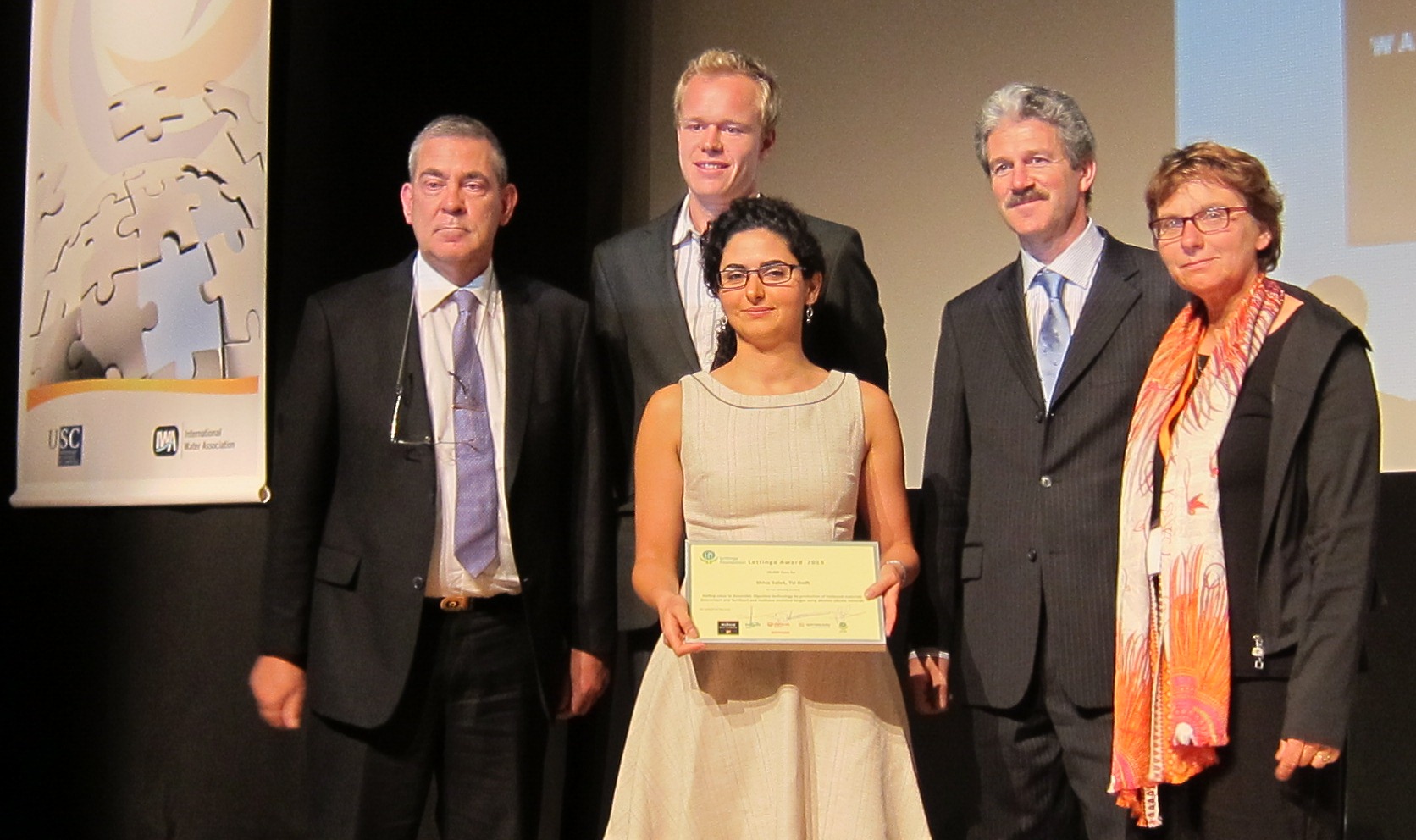PhD-student Shiva Salek was awarded the Lettinga Award in Santiago last June. Her study combines wastewater treatment and CO2 sequestration with green production of methane and cement.
In goes sewage water and grinded limestone and out comes clean water, methane and bio cement. And what’s more: the process absorbs CO2 instead of emitting it. That’s what biotechnologist Shiva Shayegan Salek MSc. describes in her project proposal Adding value to Anaerobic Digestion technology by production of biobased materials (biocement and fertilizer) and methane enriched biogas using alkaline silicate minerals. On the 13th World Congress on Anaerobic Digestion that took place in Santiago de Compostella (Spain) from 25 to 28 June, she won the Lettinga Award 2013.
CO2-sequestration, that is: binding the greenhouse gas CO2 to form mineral carbonates, may help to dampen global warming. One way of doing that is binding CO2 to calcium silicate to form calcium carbonate (CaCO3), which can be used as an ingredient for cement. Such a process however first needs an acid environment to solve the silicate and subsequently an alkaline environment to precipitate (make unsolvable) the calcium carbonate. In Salek’s rewarded project, she proposes to use biotechnological processes to provide the required degree of acidity.
Organic decomposition, ‘rotting’ or anaerobic fermentation converts organic materials into volatile fatty acids that produce smell as well as acidity. This acidity can be used in the first process phase to dissolve the silicate minerals.
Alkaline environments are produced by nitrogen removal from the wastewater and also by the methane production process. The resulting high pH removes calcium carbonate from the solution by precipitation in the second phase of the process.
A number of other processes are available too that would achieve the same ends, as Salek with co-authors explained in the review article Mineral CO2 sequestration by environmental biotechnological processes (Trends in Biotechnology, March 2013).
But since the conference asked for breakthrough innovation in anaerobic technology, the anaerobic digestion or AD featured as primary process. It was the only proposal using AD to produce useful biobased products, while at the same time fixing atmospheric CO2 in minerals.
The jury described her proposal as ‘an elegant combination of anaerobic sludge treatment, biobased product and green gas quality.’
The Lettinga Award, worth 25.000 euros, has been named after Professor Gatze Lettinga from Wageningen University who was a pioneer in both anaerobic fermentation and anaerobic digestion.
Sponsors Paques, Nijhuis Water Technology, Waterleau, Veolia Water – Biothane and LeAF support the Lettinga Award.



Comments are closed.